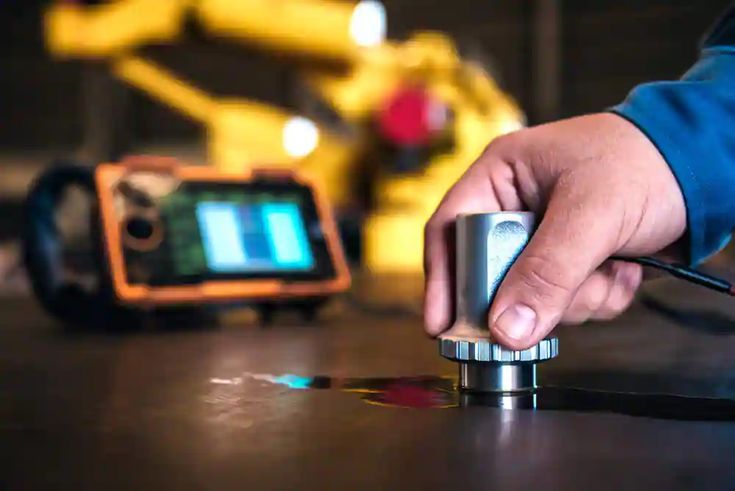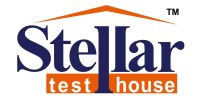When it comes to inspecting materials or components without causing any damage, Non-Destructive Testing (NDT) plays a crucial role. Whether you’re in construction, manufacturing, aerospace, or automotive industries, choosing the right Non Destructive Testing lab ensures your product is safe, reliable, and compliant with quality standards.
At Stellar Test House, we specialize in advanced NDT techniques that deliver accurate results with fast turnaround. If you’re searching for a non destructive testing lab near me, or the best NDT testing lab in Noida, we’re here to help.
What Is Non-Destructive Testing (NDT)?
Non-Destructive Testing (NDT) refers to a group of testing techniques used to evaluate the properties of a material, component, or structure without causing any damage. The goal is to detect internal or surface-level defects such as cracks, voids, or corrosion before they become serious problems.
At Stellar Test House, our certified experts use NDT methods to ensure your products meet national and international safety and quality standards.
Top 6 Types of NDT Testing Methods
1. Ultrasonic Testing (UT)
Ultrasonic testing uses high-frequency sound waves to detect flaws deep inside a material. It’s widely used for inspecting welds, castings, and pipelines.
Use Case: Ideal for thick metal parts in aerospace, shipbuilding, and oil & gas industries.
2. Radiographic Testing (RT)
This method uses X-rays or gamma rays to view the internal structure of a component. The results are captured on film or digitally.
Use Case: Common in high-precision industries like aerospace and automotive.
3. Magnetic Particle Testing (MT)
MT detects surface and slightly subsurface discontinuities in ferromagnetic materials. The process involves applying a magnetic field and observing for particle patterns that reveal cracks.
Use Case: Excellent for detecting fatigue cracks in steel parts.
4. Penetrant Testing (PT)
Also known as dye penetrant inspection, this technique highlights surface-breaking defects using a visible or fluorescent dye.
Use Case: Frequently used for inspecting non-ferrous metals, ceramics, and plastics.
5. Visual Testing (VT)
The most basic form of NDT, visual testing involves direct or remote observation of a part to identify surface issues like corrosion, cracks, or weld defects.
Use Case: Used in nearly every industry for quick and cost-effective assessments.
6. Eddy Current Testing (ET)
Eddy current testing uses electromagnetic induction to detect cracks and variations in conductivity. It’s a fast and accurate method for testing thin materials.
Use Case: Ideal for aerospace components, tubing, and conductive materials.
Why Choose Stellar Test House for Your NDT Needs?
Choosing a certified NDT testing lab near me is not just about convenience—it’s about precision, safety, and reliability. At Stellar Test House, we offer:
- Certified inspectors (ASNT Level II & III)
- State-of-the-art testing equipment
- Fast, detailed reporting
- Compliance with ISO, ASTM, and NABL standards
If you’re located in or around Noida, look no further. Stellar Test House is trusted by industries across North India as the best NDT testing lab in Noida, delivering quality you can rely on.
Final Thoughts
Non-Destructive Testing (NDT) is essential for ensuring safety and quality across various sectors. From ultrasonic to eddy current testing, every method plays a vital role in preventing failures and maintaining standards. With Stellar Test House as your partner, you get access to expert testing, fast results, and reliable support.
So if you’re searching online for a non destructive testing lab near me, or want to collaborate with the best NDT testing lab in Noida, Stellar Test House is your trusted solution.
Frequently Asked Questions (FAQs)
1. What is Non-Destructive Testing (NDT), and why is it important?
Non-Destructive Testing (NDT) is a testing process used to inspect materials, components, or structures without causing any damage. It helps identify internal or surface-level defects like cracks, corrosion, or weld flaws—ensuring product safety and reliability before use. NDT is crucial in industries like aerospace, construction, manufacturing, and automotive.
2. What types of NDT services do you offer at Stellar Test House?
At Stellar Test House, we offer a full range of Non Destructive Testing NDT services, including:
- Ultrasonic Testing (UT)
- Radiographic Testing (RT)
- Magnetic Particle Testing (MT)
- Penetrant Testing (PT)
- Eddy Current Testing (ET)
- Visual Inspection (VT)
All tests are conducted by certified professionals using advanced equipment.
3. How do I find a non destructive testing lab near me?
If you’re looking for a non destructive testing lab near me, start by checking for certifications, experience, and the range of services offered. Stellar Test House is conveniently located in Noida and serves clients across Delhi NCR and nearby regions with top-rated NDT services.
4. What makes Stellar Test House the best NDT testing lab in Noida?
We’re proud to be recognized as one of the best NDT testing labs in Noida thanks to:
- NABL accreditation and ISO-compliant practices
- Highly qualified Level II & III ASNT-certified technicians
- Accurate results with quick turnaround
- Modern infrastructure and industry-specific expertise
5. Do you provide customized NDT solutions for specific industries?
Yes! At Stellar Test House, we offer customized NDT testing solutions based on your industry needs—be it power plants, infrastructure, aerospace, or heavy machinery. We tailor our methods to your materials, compliance standards, and operational timelines.
6. How can I schedule an NDT test at Stellar Test House?
Scheduling is simple! You can:
- Call us directly at [Your Contact Number]
- Visit our facility in Noida
- Or submit an inquiry through our website
Our team will guide you through the process, from test selection to final reporting.
7. Are your NDT reports valid for government or regulatory approvals?
Yes, all our reports comply with major regulatory standards including IS, ASTM, ISO, and NABL. Our test results are widely accepted for tender submissions, safety audits, and certification requirements.


